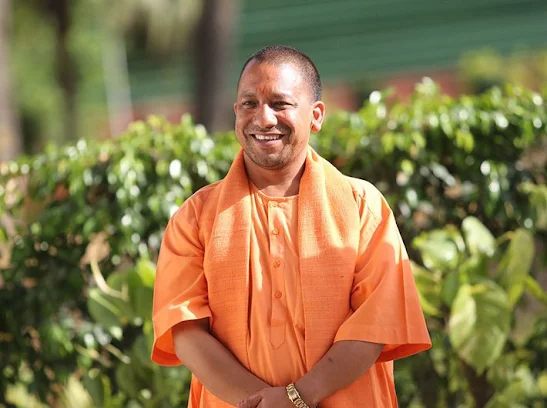Yogi Adityanath: Journey From Gorakhpur Monk to Uttar Pradesh’s Firebrand Leader
A powerful biopic journey of Yogi Adityanath, tracing his rise from monkhood to CM of Uttar Pradesh.
Yogi Adityanath: Journey From Gorakhpur Monk to Uttar Pradesh’s Firebrand Leader
Yogi Adityanath, the saffron-robed monk turned politician,
is one of India's most influential and controversial political figures. Born as
Ajay Singh Bisht on 5th June 1972 in a small village named Panchur in
Uttarakhand, his journey from a humble background to becoming the Chief
Minister of India’s most populous state is nothing short of extraordinary.
Early Life and Education
Ajay Singh Bisht was born into a Rajput family. His father,
Anand Singh Bisht, was a forest ranger. From a young age, Ajay showed a deep
interest in religion, spirituality, and social issues. He pursued a Bachelor’s
degree in Mathematics from Hemwati Nandan Bahuguna Garhwal University. Despite
being inclined towards science, the spiritual call was always strong in him.
Spiritual Transformation – Becoming ‘Yogi Adityanath’
In the early 1990s, he met Mahant Avaidyanath, the head
priest of the Gorakhnath Math in Gorakhpur and a prominent Hindu leader.
Inspired by Avaidyanath’s ideologies and spiritual influence, Ajay Singh Bisht
renounced his family life and became his disciple. He was formally initiated
into the Nath sect of Hinduism and given the name 'Yogi Adityanath'. In 1994,
he was declared as the successor of Mahant Avaidyanath.
This phase transformed his life. The Math not only served
religious purposes but was also a center of political activism. It laid the
foundation for Yogi Adityanath’s entry into Indian politics.
Entry into Politics
In 1998, at the young age of 26, Yogi Adityanath was elected
as the Member of Parliament (MP) from Gorakhpur. This made him the youngest MP
in the 12th Lok Sabha. He went on to win five consecutive terms from the same
constituency till 2017.
Known for his strong speeches and bold Hindutva stance, he
soon emerged as a popular figure in the BJP, especially among its core Hindu
nationalist supporters. Yogi also founded the Hindu Yuva Vahini, a youth
organization that supported Hindu causes and helped strengthen his grassroots
presence.
Chief Minister of Uttar Pradesh
In March 2017, the Bharatiya Janata Party won a sweeping
victory in the Uttar Pradesh Assembly elections. In a surprising but strategic
move, Yogi Adityanath was chosen as the Chief Minister of Uttar Pradesh. This
decision shocked many political analysts, as he was considered a hardliner and
was not part of the main leadership discussions during the campaign.
As CM, he promised to deliver strong governance, law and
order, and development. Under his leadership, many changes were introduced,
including:
- Crackdown
on illegal slaughterhouses
- Anti-Romeo
squads to ensure women’s safety
- Fast-tracking
infrastructure projects like expressways and airports
- Increasing
investments and industrial development
- Focus
on religious tourism, especially Ayodhya and Kashi corridors
While he received praise for law enforcement and
administrative discipline, critics accused him of promoting divisive politics.
Controversies and Image
Yogi Adityanath has been a polarizing figure. His fiery
speeches and blunt comments often triggered controversies. He has faced
criticism from human rights groups and opposition parties for allegedly
promoting communal divide. However, his supporters see him as a no-nonsense
leader who delivers what he promises and prioritizes national and cultural
pride.
Legacy and Future
In 2022, he made history by becoming the first Chief
Minister of Uttar Pradesh to return to power after completing a full five-year
term. This cemented his position as a key face in BJP’s leadership and a
probable contender for future national roles.
Yogi Adityanath’s biopic is not just the story of a monk who
turned politician, but also of a man who continues to reshape one of India’s
most complex and politically vital states. Love him or criticize him, his
journey is a reflection of how spiritual ideology and political power can
converge to create a lasting impact on Indian politics.
The life of Yogi Adityanath is a blend of devotion,
determination, and political ambition. From the quiet mountains of Uttarakhand
to the political corridors of Lucknow, his path is marked with controversy,
charisma, and conviction. A biopic on him isn’t just a tale—it’s a chronicle of
India’s changing political narrative.

